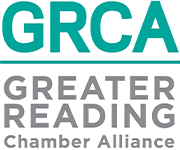Lawyers dedicated to providing justice in Reading, Berks County, and beyond.
About Us
The cornerstone is the rock upon which a whole structure is built. If it’s out of line, the building will be also. If it is weak, the foundation will not hold. In the same way, law undergirds the morals and processes of society.
Charged with DUI?
Hiring an attorney is wise, as it brings someone into the process who is knowledgeable and experienced in the options available to you. If you’ve been charged with a DUI, call the Cornerstone Law Firm today, and ask how we can help.
Contact
At Cornerstone Law, we seek to provide affordable access to an attorney in Reading, Allentown and beyond. Call today, and let us know how we can help you grow your business, defend your personal assets from lawsuits, and so much more.
We Solve Problems.
Cornerstone Law Firm, LLC is a general practice law firm located in beautiful Berks County, Pennsylvania. Together our attorneys bring decades of legal experience across a wide range of practice areas. We are passionate about helping individuals, families, and businesses with their legal problems. Contact us for help with your legal problem.
Civil Law
Criminal Defense


What Cornerstone Can Do For You
The attorneys at Cornerstone Law Firm can help you with more than just winning cases or filing lawsuits. For example…
- If you’re setting up a new business, a Cornerstone attorney can help you draft contracts, form an LLC, restructure your business, or settle ownership disputes.
- If you’re defending against a criminal charge, a Cornerstone attorney can help you determine whether you should seek ARD, accept a plea deal, or fight your charges.
- If you’re getting a divorce, a Cornerstone attorney can help you retitle your assets, draw up new estate planning documents, finalize your divorce, and negotiate custody.
- If you’re planning your estate, a Cornerstone attorney can help you write a will, appoint a power of attorney, and establish who takes custody of your minor children.
- If you’re adopting a child, a Cornerstone attorney can help you file the proper paperwork, establish parental rights, and outline boundaries between the adoptive parents and birth parents.
- If you’re recovering from an injury, a Cornerstone attorney can handle contacting other parties, negotiating with insurance companies, and making sure you receive proper compensation.
And so much more! Having a Cornerstone attorney means that you will have someone who will provide you with legal counsel and who will guide you through the complicated or difficult legal processes you are facing. You will have someone on your side who will fight for your rights and work to get the best outcome for your case. Don’t get bogged down by complicated processes or overwhelmed by the stress of your situation—Call Cornerstone Law Firm today.

















